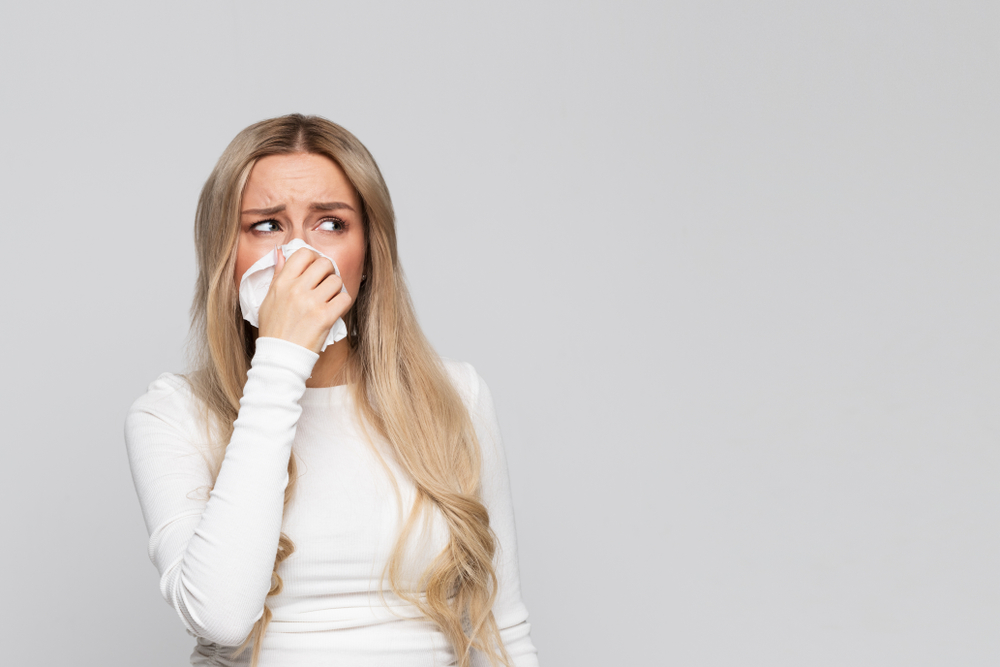5 Commonly Asked Questions About Allergies
5 commonly asked questions about allergies
The human body is an intricate system and the different components work in tandem to ensure that all our bodily functions are executed without facing any hurdles. One of the major components that keep the body healthy and wards off any potential threat is the immune system. The immune system guards the body’s boundaries and produces antibodies to fight infection-causing bacteria and viruses.
However, the immune system can also cause a ruckus in the body if it goes into an overdrive. When the immune system malfunctions, the effects are manifested in the form of allergies.

Read on to know more about the different forms of allergy and effective ways to manage the same to lead a normal life.
What is an allergy?
- The immune system is responsible for protecting the body from the invasion of foreign substances. It produces antibodies that can identify harmful bacteria and viruses and fights them off, thereby protecting the body from the onslaught of infections.
- However, there are instances when the body comes in contact with harmless substances like pollen or pet dander, and the immune system mistakes it for a harmful substance and starts attacking it.
What are the common causes of allergies?
- Allergies occur when the immune system mistakes a harmless substance for a threat and starts attacking it. In fact, these allergens are some of the most harmless substances found in the environment.
- When the body comes in contact with a foreign substance, the immune system produces antibodies, which remain on the lookout for the particular allergen. When the body is exposed to the same allergen again, the antibodies release several immune system chemicals like histamine, which are known to trigger various allergy symptoms.
- Also, people who have asthma or a family history of asthma or similar allergies are more prone to develop allergies. Also, children are more vulnerable to allergies and people who aren’t exposed to enough sunlight can develop allergies as well.
What is pollen allergy?
- One of the most common forms of allergies is a pollen allergy, which is commonly known as hay fever as well. The harmless pollen in the environment can set off the immune system and trigger severe allergic reactions.
- Usually, in spring, summer, and fall, plants tend to release pollen to fertilize plants of the same species. As these pollen are light, small, and dry, these aren’t clearly visible, so there are no chances of avoiding coming in contact with them.
What are the symptoms of pollen allergy?
When one comes in contact with the pollen, the following symptoms start surfacing.
- Sneezing
- Itchy nose, eyes, ears, and mouth
- Red and watery eyes
- A runny nose and mucus production
- Swelling around the eyes
- Cough
These symptoms can get worse if one doesn’t seek the appropriate allergy treatment. When these symptoms surface, it becomes necessary to consult a doctor and take the medicines prescribed by the doctor instead of opting for over-the-counter drugs without consulting the doctor.
Which are the effective treatments for pollen allergies?
- Pollen allergies are quite common and can affect anyone irrespective of their age. The most common treatments for pollen allergies involve the use of antihistamines which can effectively block out the histamines that cause the allergic reactions.
- Another popular technique for treating pollen allergy is using decongestants to help you breathe without facing any difficulties.
- At times, to combat severe pollen allergies, the doctor can combine antihistamines and decongestants for better results.
- As a part of immunotherapy, the doctor might recommend getting allergy shots. In this form of allergy treatment, the allergy shots that are administered contain the allergens. The entire idea of this form of treatment is to slowly build the body’s resistance to this allergen.
- There are several home remedies one can opt for treating pollen allergies. These include using a neti pot to flush off the pollen from the nose or use a HEPA filter or dehumidifier to cleanse your house of pollen.
Tags- allergy treatments

